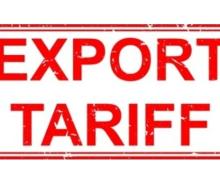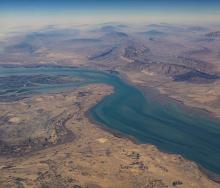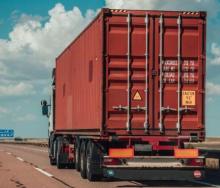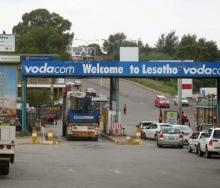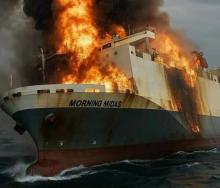In celebration of the 50th anniversary of the Road Freight Association (RFA) and ahead of the organisation’s annual conference next weekend, Freight News invited RFA chief executive Gavin Kelly to a Q and A session to shed more light on a few industry matters.
Q: Please tell us about the origin of the RFA. What has stood out for you as milestones in the RFA’s half century?
A: Since its establishment as the Public Hauliers Association in 1975, followed by the formation of the Public Carriers Association in 1981 and the subsequent creation of the Road Freight Association (RFA) in 1989, the Association has evolved to encompass the entire road freight sector in South Africa.
For over five decades, the RFA has played a pivotal role in shaping policy, improving industry standards and supporting its members through technical advice, operational support, advocacy, training and wellness initiatives. The RFA’s 50th anniversary in 2025 is testament to its enduring impact and leadership in the South African transport sector.
The following timeline provides a detailed overview of the RFA’s formation and key milestones from 1975 to 2025:
- 1975: Formation of the Public Hauliers Association (PHA)
The Public Hauliers Association (PHA) was established in 1975 in response to the need for professional hauliers to have a unified voice. Initially, ancillary (private) operators and transport brokers were excluded from membership because their interests were considered to conflict with those of professional hauliers.
- 1981: Establishment of the Public Carriers Association (PCA)
The Public Carriers Association (PCA) was formed in 1981 to further consolidate representation of the road freight sector. The PHA and PCA would both become forerunners of the modern RFA.
- 1989: Launch of the Road Freight Association (RFA)
In 1989, the PCA was reconstituted as the Road Freight Association in recognition of the need for a single, unified body to represent the diverse interests of the road freight industry. This new name reflected the inclusion of various special-interest groups, including those involved in general freight, tankers, tippers, refrigerated products, truck rental and leasing, furniture removals and parcel deliveries. The first board meeting was held on 16 November 1989.
- 1990: Engagement with Government and Policy Advocacy
The RFA started to engage directly with the Minister of Transport, addressing many operational and strategic policy issues such as overloading, vehicle mass and dimensions, road funding, traffic policing, vehicle and driver fitness, international best practice requirements such as Dangerous Goods and driver hours. The Association has continuously campaigned and championed for fair and sustainable road transport policies and helped to shape transport legislation – many chapters of the current National Road Traffic Act 93 (NRTA) of 1996 being directly attributed to the RFA (Chapter VI – Operator Fitness and the dimensions and limitations relating to road freight vehicles and operations being the key aspects).
- 1991-1992: Regulatory Developments
In January 1992, the RFA influenced the implementation of revised vehicle dimensions and update of the bridge formula. It also campaigned for the permit system to be phased out and for direct dialogue with Spoornet (now Transnet) to be established regarding market competition.
- 1995: Launch of RFA’s Industry Magazine
The RFA relaunched its member newsletter as the monthly magazine Focus on Trucking, which was later sold to a commercial publisher. Today, the RFA produces RFA Truck Talk, a quarterly in-house electronic magazine for the industry with a confirmed circulation in excess of 40 000.
- 1996: Formation of the RFA Labour Relations Committee
The RFA Labour Relations Committee (formerly the Road Freight Employers' Association) was set up to represent RFA members' labour interests at the National Bargaining Council for the Road Freight and Logistics Industry (NBCRFLI). This marked a move towards unified, national collective bargaining within the industry.
- Late 1990s: Industry Deregulation and Expansion
Following deregulation, the RFA expanded its membership to encompass all road transport businesses. The Association now focuses on promoting responsible road transport standards, driver working hours, preventing overloading and ensuring the quality of maintenance.
- 2003-2014: Broad-Based Black Economic Empowerment (B-BBEE)
By becoming a signatory and consultative stakeholder to the B-BBEE Charter for Road Freight Transport, Logistics and Allied Services, the RFA is promoting transformation and empowerment within the industry.
- 2010s: Advocacy, Wellness, and Modernisation
The RFA continued to lobby on behalf of the industry, addressing issues such as road infrastructure funding, axle mass limits and regulatory compliance. The Association created the well-known ‘Trucking Against Aids’ programme, which then evolved into the broader suite called ‘Trucking Wellness’, which provides mobile clinics and an extended health service to industry employees nationwide – far greater than ‘just’ HIV Aids services.
- 2020s: Digital Transformation and Sustainability
The RFA strengthened its digital presence by launching a comprehensive website offering online resources to its members, implemented virtual Interest Groups for specific types of operations or cargoes, or methods of operation that now provide support to members on a 365/24/7 basis. The association also prioritised green transport, safety and compliance, as well as supporting small and emerging operators. The RFA has driven Road Transport Quality Systems (RTQS) from the late 1990s – as it was key in bringing this aspect into the NRTA when part of the development of the then ‘new’ legislation.
- 2025: 50th anniversary
The RFA is celebrating its 50th anniversary as the unified voice of the South African road freight industry. It is recognised for its advocacy, industry leadership and commitment to responsible and sustainable transport.
Q: Has the RFA over the years grown into a more narrow-focused role for the road freight industry, or do you prefer a vision that’s both broad and specialised?
A: The RFA has retained a broad vision for the road freight industry – as that is the nature of the road freight sector – however there still remains the requirement to sharply focus on the sector's unique challenges, sustainability requirements and development priorities.
It is the largest and most comprehensive national trade association for the trucking industry in South Africa. Its stated vision is 'To be the voice of the road freight industry in South Africa'. This results in an inherently broad mandate to represent the diverse interests within the sector.
The RFA actively lobbies and negotiates on issues that affect the state of the road freight industry, including levies charged by authorities, the maintenance and development of road infrastructure, road safety standards and initiatives, and freight security measures.
The RFA is also involved in discussions and critiques regarding broader logistics challenges in South Africa, such as issues with state-owned enterprises like Transnet and their impact on the road freight sector. The Association has developed an extremely close relationship with SARS Customs and has been part of the two-decade journey to bring about the more efficient border crossing that now exists at our ports of entry around the country.
Furthermore, the Association actively addresses challenges related to cross-border transport.
The RFA's mission is to "add value in a sustainable and professional manner" to the road freight industry, and to "promote professionalism, excellence, and safety in road transport".
This highlights its dedicated focus on the particular needs and standards of trucking and road logistics.
The RFA is involved in targeted activities, including hosting meetings for various interest groups within the road freight sector, taking a tailored approach to different industry segments.
Webinars, summits, workshops, exhibitions, partnerships and collaborations, conferences, and the annual Convention are all designed to highlight freight-specific solutions, raise awareness of key aspects, challenges or priorities (as the specific need may require) and propose sustainable, workable solutions or alternatives the specific challenges in road transport.
Throughout its history, the RFA has played a vital role in shaping a 'more stable, efficient and safety-conscious road freight sector', demonstrating its long-term specialised commitment to improving specific operational aspects of the industry.
Therefore, it is quite clear that the RFA has not narrowed its focus over the years. Instead, it delivers as best possible on the broad mandate to represent and advocate for the entire South African road freight industry, while simultaneously taking a specialised approach to addressing the unique operational, regulatory and safety challenges of this vital sector.
The RFA strives to live up to its widely recognised status as the overarching voice of the industry, while also addressing the specific needs that ensure the professionalism, efficiency, sustainability and safety of the road freight industry.
The RFA was key in creating the first learning programmes in Road Transport and Logistics at the then RAU (now known as UJ). Those early programmes have developed into many courses, have thousands of students registered every year – and are now copied by numerous other institutions of higher learning across the country. The Association presents guest lectures, assists students in research, has developed themes and materials for use, and is continually assisting in developing and improving the courses offered to meet the realities of operations.
Q: What challenges do you think the future holds for the industry?
A: The Association anticipates a range of significant challenges for the future of the South African road freight industry. These concerns span the economic, infrastructural, regulatory, technological and social domains, including the following.
Fluctuating fuel and energy prices, increasing maintenance costs and other rising input costs are a primary concern. The fragile South African economy, with modest GDP growth forecasts, could lead to reduced markets and decreased demand for transporting goods.
There is continuous pressure to reduce expenses, which can impact investment in new technologies and fleet upgrades. The collapse of supply chain efficiencies, particularly in ports and railways (managed by entities such as Transnet), has a direct impact on the road freight sector, resulting in delays and increased costs.
The poor state of the road network and its maintenance are persistent challenges, leading to increased vehicle wear and tear, slower transit times and higher accident risks. Congestion and inefficiencies at ports and border crossings cause significant delays and increase operational costs.
While 'Open Access to Rail' presents opportunities, overcoming challenges such as ageing rail infrastructure, fair access pricing and operational integration is crucial.
Adapting to new and evolving regulations, including those related to safety, emissions, Broad-Based Black Economic Empowerment and transport sector codes, is an ongoing challenge.
Political instability, particularly with regard to economic reforms and infrastructure investment, remains a major concern for investors and logistics operators.
There is lawlessness on the roads, with non-compliant transport operators continuing to flout regulations, operate unroadworthy vehicles and implement sub-minimum employment procedures.
The implementation and potential increase of carbon taxes will add to operational costs and necessitate investment in greener technologies.
The industry must adapt to rapid technological advancements, such as artificial intelligence (AI) for safety and fleet management, telematics, and digital freight forwarding.
Automation and the Fourth Industrial Revolution: These will inevitably change current operations and transport methodologies, requiring adaptation and investment.
There is increasing pressure to decarbonise operations, explore biofuels, optimise routes and adopt emerging technologies such as electric and hydrogen-powered trucks. Aligning with national strategies such as the Green Transport Strategy will necessitate investment in cleaner technologies.
Meanwhile, hijackings, theft syndicates and violence (including the burning of trucks) continue to pose serious threats to drivers and cargo.
Driver fatigue management and overall driver safety improvements are needed, for example through AI-driven systems.
Continued pressure for increased wages and benefits may not always be sustainable and poses a challenge. The industry is also facing shortages of skilled professionals, including truck drivers and logistics managers.
The rise of e-commerce platforms continues to impact conventional retail models and logistics chains, creating opportunities for the parcel and courier industry, but also presenting challenges to traditional large-scale retail logistics.
With the African Continental Free Trade Agreement (AfCFTA) now in operation, South Africa risks losing cargo and vessels to more efficient neighbouring ports unless it improves its own logistics systems.
As demonstrated by the impact of the pandemic, the industry must also be prepared for future disruptions and pandemics that could significantly affect operations and markets.
The unstable supply of energy is of great concern. This is not only fuel related to road haul operations, but also in terms of warehousing requirements. Many road freight operators rely on warehouses for stock rotation, DCTs for customer supply and inventory management and, finally, for the ‘suite of services’ that 3PL and operations require.
It goes without saying that operations – lighting, security, inventory and delivery systems, refrigeration, heating and host of support systems (eg fire suppression) all require stable electricity supply. Much of this is now being replaced by solar or generator capacity.
Water supply is the next big area of concern – just as a consistent and dependable energy supply is crucial – so too is water. The industry has had to come up with innovative ways of not only conserving and reusing waste water, but also ensuring on-site supply for (amongst others) fire suppression systems.
Q: What do you think should be done to ease the way for transporters, especially against the backdrop of past logistical challenges?
A: The RFA has spoken out about the many challenges facing the transport and logistics sector, proposing several measures to make things easier for transporters.
In the Cross-Border space specifically, the RFA has highlighted issues with the goods clearance process and security (i.e. smuggling), as well as the need for more transporters to become Authorised Economic Operators (AEOs). The RFA has suggested the introduction of dedicated lanes and gates for AEOs to expedite their transit as well as the removal of the manual process (which still results in delays by those who do not pre-clear).
Although initiatives such as the National Logistics Crisis Committee (NLCC) and the Freight Logistics Roadmap already exist, concerns have been raised about the slow pace of implementation.
The RFA has been proactive in suggesting solutions and working towards them. It has strongly advocated for, and collaborated with SARS Customs on the implementation of pre-clearing systems for goods. The aim is to enable freight vehicles to proceed to the border only after customs clearance has been obtained, thereby reducing manual processing and delays at the border itself. The Association maintains a close working relationship with SARS Customs to ensure that trucks and freight can cross borders as quickly as possible.
The RFA is pushing for large-scale scanners to be implemented at border posts, which would eliminate the need for physical truck inspections and speed up the process while helping to identify non-compliant operators.
The RFA supports the government's policy shift towards third-party rail access, viewing it as an opportunity to reduce road congestion, lower transport costs and decrease carbon emissions. However, it acknowledges that challenges such as ageing rail infrastructure and fair access pricing need to be overcome.
The RFA emphasises the need for Transnet to make significant changes to its logistics approach in order to avert a deeper crisis. We promote discussions on sustainable energy solutions, innovation in intermodal freight and the development of inland ports.
The Association closely monitors initiatives such as AARTO and engages with the RTMC to understand the impact of these initiatives on operators. The RFA has representatives on the Presidential Crisis Committee working on crime and is beginning to see some progress.
The RFA hosts annual conventions and meetings for interest groups, often online via platforms such as Microsoft Teams, to bring together industry experts, discuss pressing issues and deliver practical solutions.
Through lobbying and negotiation, the RFA actively works to influence the state of the industry, levies, road infrastructure maintenance, and road safety. In light of political changes, the RFA aims to forge new relationships with key ministries to drive positive economic growth.
The Association facilitates discussions on how to navigate the challenging financial landscape, with contributions from economic experts. It provides operators with the tools they need to improve efficiency and sustainability in a rapidly evolving environment, including adapting to rail liberalisation and decarbonisation pressures, such as the use of biofuels, route optimisation, electric/hydrogen trucks and carbon taxes.
The RFA believes that streamlined processes (especially at borders), greater private-sector participation (particularly in rail), significant infrastructure investment, the adoption of technology for safety and efficiency, and strong collaboration between government and the private sector are crucial to easing the path for transporters and revitalising South Africa's logistics network. The Association emphasises the need for decisive action, particularly in implementing existing roadmaps and reforms, rather than just talking about them.
Q: Thinking of your predecessor and where the bar of leadership was set, what would you like your legacy to be?
A: The goal is to be recognised as the primary, most effective and most respected representative body for all road freight operators in South Africa, ranging from large corporations to smaller enterprises.
We want to be remembered for our significant contribution to the professionalisation and modernisation of the road freight industry, making it more sustainable, safer and more efficient.
We want to be acknowledged for our crucial role in ensuring the road freight sector effectively supports and drives South Africa's economy.
We want to be known as an organisation that successfully navigated numerous challenges, such as economic downturns, regulatory changes, infrastructure issues, technological shifts and crime, and helped the industry adapt and thrive.
We want to be remembered not just for identifying problems, but for actively working with the government and other stakeholders to find and implement practical solutions.
Ultimately, the RFA wants to be remembered as an indispensable, transformative and steadfast advocate that professionalised the road freight industry, ensured its sustainability and cemented its role as a cornerstone of the South African economy for over half a century and beyond. We want to be remembered as the organisation that kept South Africa moving.

